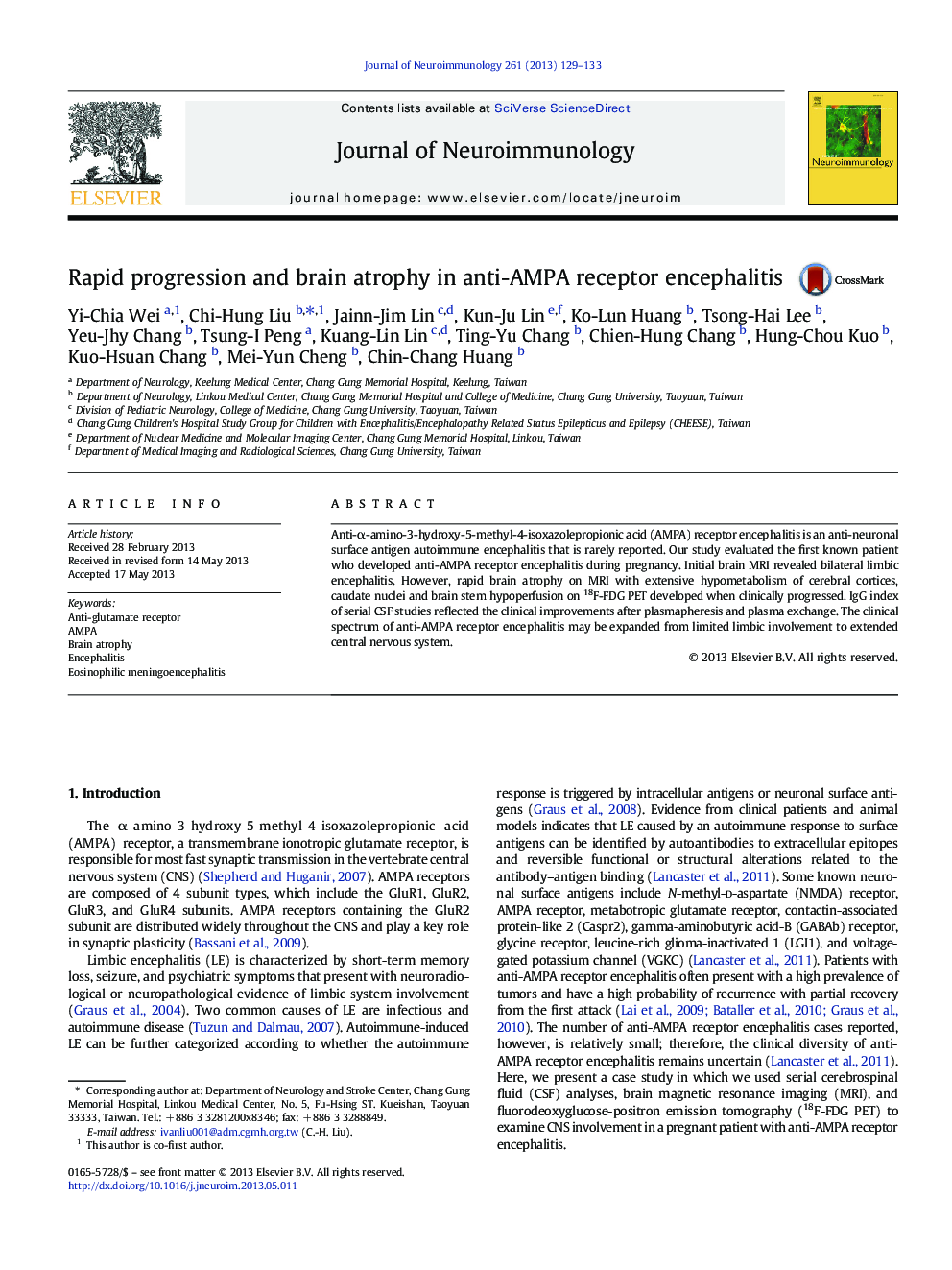| Article ID | Journal | Published Year | Pages | File Type |
|---|---|---|---|---|
| 6020510 | Journal of Neuroimmunology | 2013 | 5 Pages |
Abstract
Anti-α-amino-3-hydroxy-5-methyl-4-isoxazolepropionic acid (AMPA) receptor encephalitis is an anti-neuronal surface antigen autoimmune encephalitis that is rarely reported. Our study evaluated the first known patient who developed anti-AMPA receptor encephalitis during pregnancy. Initial brain MRI revealed bilateral limbic encephalitis. However, rapid brain atrophy on MRI with extensive hypometabolism of cerebral cortices, caudate nuclei and brain stem hypoperfusion on 18F-FDG PET developed when clinically progressed. IgG index of serial CSF studies reflected the clinical improvements after plasmapheresis and plasma exchange. The clinical spectrum of anti-AMPA receptor encephalitis may be expanded from limited limbic involvement to extended central nervous system.
Keywords
Related Topics
Life Sciences
Immunology and Microbiology
Immunology
Authors
Yi-Chia Wei, Chi-Hung Liu, Jainn-Jim Lin, Kun-Ju Lin, Ko-Lun Huang, Tsong-Hai Lee, Yeu-Jhy Chang, Tsung-I Peng, Kuang-Lin Lin, Ting-Yu Chang, Chien-Hung Chang, Hung-Chou Kuo, Kuo-Hsuan Chang, Mei-Yun Cheng, Chin-Chang Huang,
